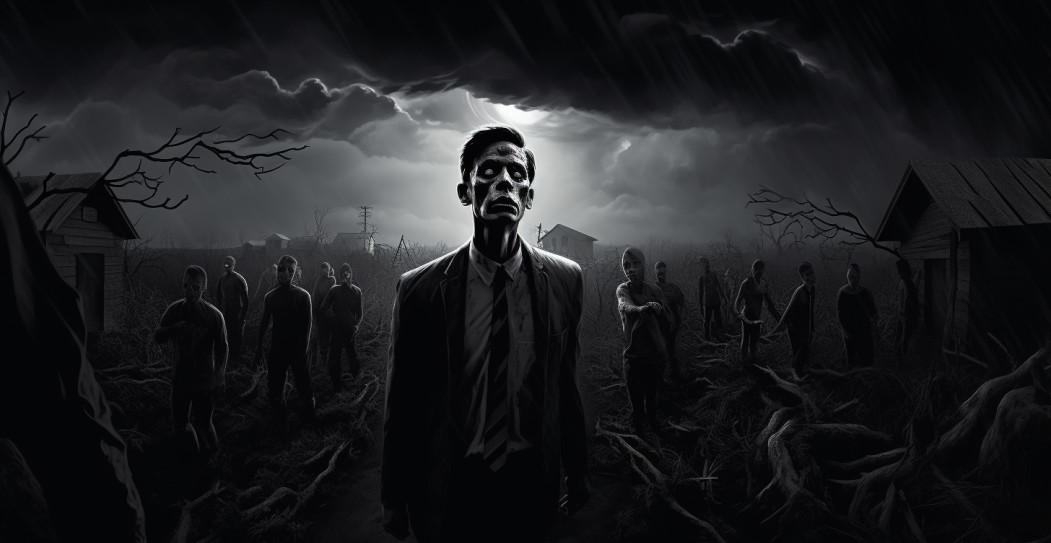The zombie archetype has evolved over time and has its origins in various cultural and historical sources. The concept of reanimated corpses or beings with zombie-like characteristics can be traced back to different cultures and folklore. Here are some of the key origins and influences on the zombie archetype:
- African and Haitian Folklore:
One of the earliest influences on the zombie archetype comes from African and Haitian folklore. In Haitian Vodou, there is a belief in the existence of a zombi, which is a reanimated corpse controlled by a sorcerer, known as a bokor. This idea of the zombie as a mind-controlled, reanimated corpse has its roots in these traditions. - Caribbean and West African Beliefs:
In the Caribbean and parts of West Africa, there are similar beliefs in the reanimation of the dead, often associated with the practices of Vodou or other spiritual traditions. These beliefs have contributed to the zombie mythos. - Literature:
The early 20th-century novella “The Magic Island” by William Seabrook, published in 1929, is often credited with introducing the concept of zombies to a wider Western audience. Seabrook’s book explored Haitian culture and included descriptions of the Haitian zombie folklore. - Hollywood:
Hollywood played a significant role in shaping the modern zombie archetype. The 1932 film “White Zombie,” starring Bela Lugosi, is considered one of the first zombie movies. However, it was George A. Romero’s 1968 film “Night of the Living Dead” that had a profound impact on popularizing the modern zombie as a flesh-eating, reanimated corpse. This film set the stage for the zombie apocalypse genre. - Pop Culture:
Following “Night of the Living Dead,” zombies became a staple of horror films, literature, and pop culture. The concept of a zombie apocalypse, where a contagion or virus turns people into mindless, flesh-eating creatures, has been explored in countless movies, TV shows, and video games. - Cultural Evolution:
The zombie archetype has continued to evolve in the 21st century, with various interpretations and variations. Some modern stories explore the idea of zombies as a metaphor for societal issues, such as consumerism (“Dawn of the Dead”) or the loss of individuality in a politico, technology-driven world (“Black Mirror”).
The modern education system
Zombieism can serve as a metaphorical lens through which to examine certain aspects of modern education systems. Just as zombies are often depicted as mindless, relentless creatures driven by an insatiable hunger, some critics argue that modern education systems can often foster a rote and mechanistic approach to learning. The pressure to conform to standardized testing and rigid curricula can reduce students to passive recipients of information, stifling their creativity and critical thinking. In this sense, the “zombification” of education reflects concerns about the dehumanizing effects of overly standardized and one-size-fits-all approaches, highlighting the need for more individual-centered, holistic, and flexible models of learning that nurture individuality and intellectual curiosity, rather than turning learners into passive automatons.
In summary
In summary, the zombie archetype, rooted in folklore and popularized by Hollywood, has become a symbol deeply embedded in modern culture. Beyond its entertainment value, it also serves as a thought-provoking metaphor. Just as zombies represent mindlessness and conformity, some critics draw parallels between these traits and certain aspects of modern politics, consumer and education systems. These systems, at times, prioritize “zombification” of the masses in order to achieve continuation and a flourishing of entity existence.
